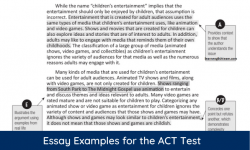Better Than’ vs. ‘Better Then’ – A Guide to Correct Usage
English, as simple as it seems, loves its little tricks. One classic example? The confusion between “better than” and “better then.” You’ve likely come across these phrases in conversations, texts, or emails and paused for a moment—“Wait, which one is right here?” If so, you’re far from alone.
The good news? Clearing up this confusion is much simpler than you think. By the time you finish reading this, you’ll feel more confident and—yes—communicate better than ever before.
To keep these words straight: use ‘than’ for comparisons and ‘then’ for anything related to time or sequence.
Want to learn more? Check example sentences and charts down below.
What We’re Covering Here
- The actual meanings behind “better than” and “better then.”
- Practical examples to make it all click.
- Common mistakes and how to fix them.
- Why context changes everything.
- Quick tips to master these phrases for good.
Let’s get started!

The Basics: “Better Than” vs. “Better Then”
The key difference boils down to their meanings and usage:
- Better than: This phrase is all about comparison. Use it when you’re showing something is superior.
- Example: “This movie is better than the first one.”
- Better then: Here’s where it gets tricky. “Then” has nothing to do with comparisons. Instead, it’s used to indicate time or a sequence of events.
- Example: “The weather was better then than it is now.”
Common Mistakes and Easy Fixes
It’s no surprise people mix these up—they sound nearly identical. But here’s a quick way to decide:
- Are you comparing two things? Use than.
- Are you referring to time? Use then.
Examples:
- “She’s taller than her brother.” (comparison)
- “We grabbed lunch, and then went for a walk.” (sequence)
Simple, right?
Cheat Sheet: Quick Reference for “Than” and “Then”
| Usage | Example |
|---|---|
| Better than (comparison) | “My new car is better than my old one.” |
| Then (time/sequence) | “We’ll meet for coffee, and then head home.” |
Why “Better Than” Makes a Difference in Everyday Speech
Here’s something to keep in mind: using “better than” correctly makes your sentences sound polished and precise. Imagine saying, “This phone is better then mine.” It just feels off, doesn’t it?
An easy mental trick:
- “Than” = comparison. Picture two things competing—“A is better than B.”
- “Then” = sequence. Think of time—“First this happened, then that.”
How to Master These Phrases Like a Pro
If you want to lock these rules into memory, here are some practical tips:
- Pause and Double-Check: Before writing, ask yourself: Am I comparing, or talking about time?
- Read Aloud: When spoken, mistakes often jump out at you.
- Practice Regularly: Write a few sentences using “than” and “then” correctly.
Try These for Practice:
- “Her performance was better than I expected.”
- “We’ll finish this project, and then celebrate.”
A Quick Note on “Better Then”
So, does “better then” ever make sense? Rarely—but yes, in specific contexts where time is involved. For example:
- “The situation was better then than it is now.”
Here, “then” refers to a specific point in time. That said, most people avoid this phrasing because it sounds awkward.
Conclusion: Small Distinctions, Big Impact
Mastering the difference between “better than” and “better then” boils down to one thing: context.
- Use “than” for comparisons.
- Use “then” for time or order of events.
Get this right, and your writing and speaking will be clearer, sharper, and more confident.
Remember this simple rule: “Than” = comparison. “Then” = time. It’s as straightforward as that.
FAQs: Quick Answers to Common Questions
Q: Is “better than” always correct?
A: Yes, when comparing things. For example, “This pizza is better than the last one.”
Q: Can I use “better than” in informal chats?
A: Absolutely—it works in both casual and formal settings.
Q: How can I remember the difference between “than” and “then”?
A: Think of “than” as competition and “then” as a timeline.
Q: Is “better then” ever right?
A: It’s rare, but it works when talking about time (e.g., “It was better then than now”).
Q: Why do people confuse these two so often?
A: Because they sound nearly the same when spoken!
Example Sentences Using Better Than and Then
- Better than or then yesterday
- His performance today was better than yesterday’s.
- Better than or then expected
- The test was better than expected; I scored much higher than I thought.
- Better than or then nothing
- Having a small meal is better than nothing when you’re hungry.
- Better than or then me
- She sings better than me, and I’m happy to learn from her.
- Better than or then ever
- He’s performing better than ever after months of practice.
- Better than or then before
- This version of the software is better than before with fewer bugs.
- Better than or then you
- Nobody understands this concept better than you.
- Better than or then yours
- My presentation turned out better than yours because of the visuals.
Download This Lesson as a PDF:
Better Than or Better Then PDF – download



